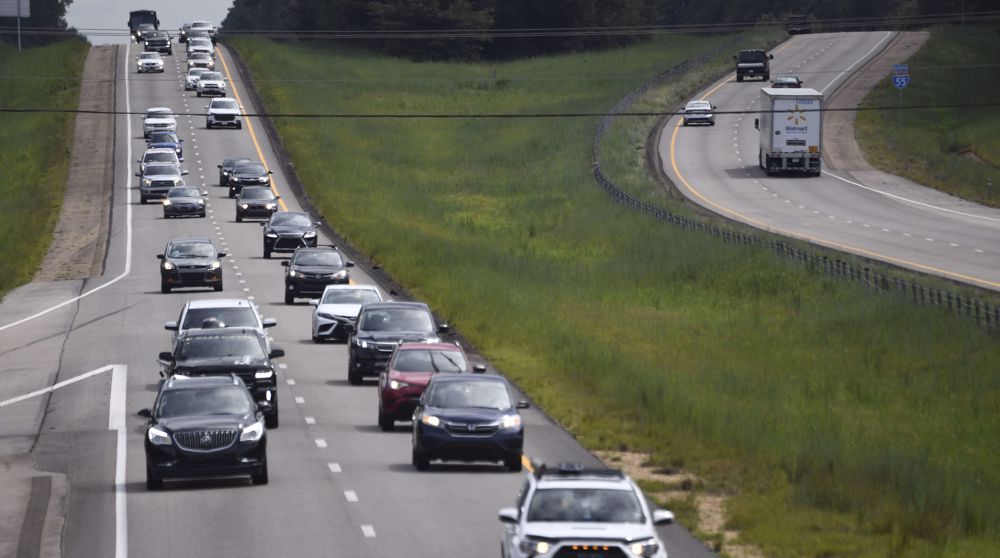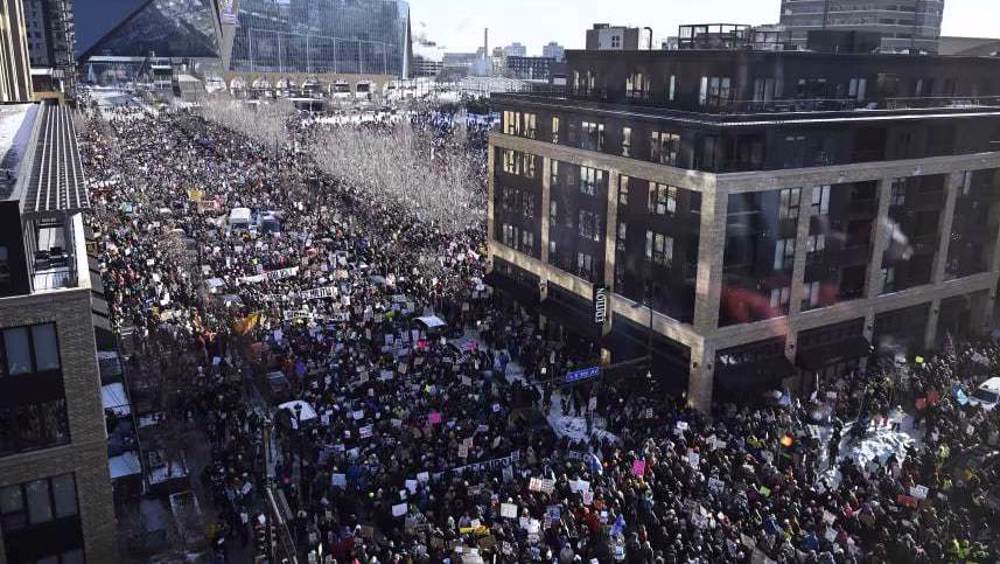Hurricane Ida hits Louisiana, governor says levees will hold
Hurricane Ida made landfall in Louisiana on Sunday as an extremely dangerous Category 4 storm, forcing those who did not flee to brace themselves for the toughest test yet of the billions of dollars spent on levee upgrades following Hurricane Katrina 16 years ago.
Ida came ashore near Port Fourchon, Louisiana, at 11:55 a.m. CDT (16:55 GMT), the National Hurricane Center (NHC) said. Hurricane-strength winds extended 50 miles (80 km) out from Ida's eye, forcing New Orleans to suspend emergency medical services as the storm crawled northwest at 13 miles per hour (21 km per hour).
Hundreds of miles of new levees were built around New Orleans after the devastation of Katrina, which made landfall 16 years ago to the day, inundating historically Black neighborhoods and killing more than 1,800 people.
"This is one of the strongest storms to make landfall here in modern times," Louisiana Governor John Bel Edwards said at a news briefing.
The state "has never been more prepared," he said, predicting that no levees in the Hurricane & Storm Damage Risk Reduction System protecting the greater New Orleans area would be overtopped.
"Will it be tested? Yes. But it was built for this moment," he said. Edwards said some levees in the state's southeast not built by the federal government were predicted to overtop.
More than 300,000 Louisiana homes and businesses had already lost electricity, mostly in the state's southeast, according to the tracking site PowerOutage.
"As soon the storm passes, we're going to put the country's full might behind the rescue and recovery," President Joe Biden said after a briefing at the headquarters of the Federal Emergency Management Agency in Washington.
Just three days after emerging as a tropical storm in the Caribbean Sea, Ida had swelled into a Category 4 hurricane on the five-step Saffir-Simpson scale with top sustained winds of 150 miles per hour (240 km per hour), the NHC said.
Palm trees trembled as rain blasted in sideways through New Orleans on Sunday, where retired 68-year-old Robert Ruffin had evacuated with his family to a downtown hotel from their home in the city's east.
"I thought it was safer," he said. "It's double trouble this time because of COVID."
Hours later, howling winds sucked out windows on the hotel's third floor, and blue curtains were seen fluttering outside.
In the capital of Baton Rouge, Marvin Broome said he had no choice but to stay home because his wife is the mayor, Sharon Weston Broome. The 73-year-old English teacher said in a phone interview he was stashing family valuables and important papers in a safe part of their home while Mayor Broome dealt with the city of 224,000.
Predicted storm surges were already happening, exceeding 6 feet (1.83 m) in some parts of the coast. Parts of Highway 90 that runs along the Louisiana and Mississippi Gulf Coast had become a choppy river, according to videos posted on social media.
Source: Reuters
VIDEO | Tehran appreciates Pakistan’s defense of Iran’s sovereignty at UN
VIDEO | US pressure or rights advocacy? Tunisia pushes back
VIDEO | Gaza security trap: Why disarmament without political path risks anarchy
‘How many more have to die?’: Minneapolis mayor demands Trump end ‘invasion’
VIDEO | Criticism grows over Pakistan joining Trump-led 'Board of Peace'
Iraq’s dominant political bloc nominates Nouri al-Maliki for prime minister
Israel moves to restrict Palestinian re-entry to Gaza, ‘encourage outflow’: Report
VIDEO | Iran warns enemies against new 'adventurism'










 This makes it easy to access the Press TV website
This makes it easy to access the Press TV website